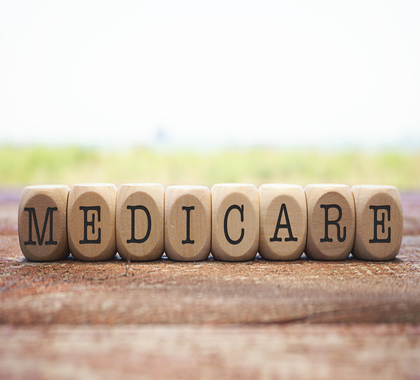The survey conducted by the Monmouth University Polling Institute and released on August 26 found voters who lean or identify as Democrat want to keep private health insurance, even though they express support for Medicare for All, a plan that would force everyone into a national, government-run system and ultimately end private health insurance.
The poll used phone interview responses from a sub-sample of 298 interviewees to collect views on current Democratic presidential candidates and Medicare for All. Although the majority support Medicare for All, nearly 80 percent of those polled prefer that private insurance remain available.
‘Positive View of Socialism’
Voters who support Medicare for All are generally in favor of socialism overall, says Merrill Matthews, a scholar for the Institute of Policy Innovation and policy advisor to The Heartland Institute, which publishes Health Care News.
“The poll suggests that a majority of Democrats, 58 percent, support Medicare for All,” said Matthews. “This finding should not surprise anyone, since a Gallup poll suggests that 57 percent of Democrats have a positive view of socialism.”
The poll indicates confusion over what Medicare for All is, says Matthews.
“Some think it is a generic term for wanting everyone to have access to health care,” Matthews said. “Even many seniors on Medicare seem to think that Medicare for All means that everyone would have what seniors have.”
The accuracy of the survey is questionable, says Matthews, “because Monmouth polled a very small number of people and found a three-way tie among Joe Biden, Bernie Sanders, and Elizabeth Warren [for the Democrat presidential nomination], something no other polling company has discovered. The poll may be an outlier.”
Ending Insurance Choice
Matthew says true Medicare for All would eliminate private health insurance.
“It would outlaw private insurance for anything covered by Medicare for All,” said Matthews.
“By contrast, private insurance could continue to coexist under some limited Medicare for All plans, sometimes referred to as Medicare for More,” said Matthews. “But it would only be a question of time before the partial Medicare for All plans crowded out or shut down private insurance, including employer-based private coverage.”
That is the inevitable outcome of any plan that entails more government involvement in health care, says Meridian Baldacci, a research assistant at The Heritage Foundation.
“It’s the same lesson we keep seeing in poll after poll, that even when Americans say they want Medicare for All, they are reluctant to support a system that would abolish their private coverage,” said Baldacci. “The truth is, Medicare for All itself would do exactly that. Even so-called public options would move the market toward single-payer, albeit less abruptly.”
More Government, More Problems?
Baldacci says many policymakers and members of the public have a poor understanding of what has broken the nation’s health insurance market.
“Bad government policy contributed to the problems Americans face today, and Medicare for All would only double down by putting most Americans onto a single, government-run plan,” Baldacci said. “Medicare for All would eliminate choices and increase costs. That’s not patient-centered care.”
A “public option” which gives consumers the choice of a government plan is not a better alternative, says Baldacci.
“[It] would move the market in this same direction, albeit more slowly,” said Baldacci. “Public options favor the government-offered plan so that it is hard for the private options to actually compete. These ‘options’ are simply a Trojan horse for Medicare for All.”
Surveys consistently show Medicare for All is not what the public really wants, says Baldacci.
“What the polling points to more broadly is that Americans have genuine concerns,” Baldacci said. “They’ve seen their costs double in the individual market under Obamacare, and they often don’t have the coverage choices they want; but they also want a real solution. A real solution would increase choices, lower costs, and protect the vulnerable. In short, it would be a patient-centered policy.”
Ashley Bateman ([email protected]) writes from Alexandria, Virginia.
Internet info:
“3-Way Lead as Dem 2020 Picture Shifts,” Monmouth University Polling Institute, August 26, 2019: https://www.monmouth.edu/polling-institute/reports/monmouthpoll_US_082619/




